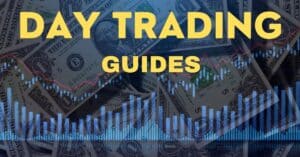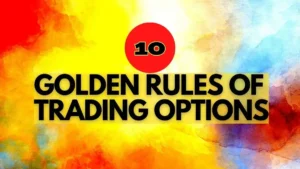- Introduction
- The Impact of Poor Trading Psychology
- The Influence of External Factors
- Why does it need to develop the right trading psychology?
- How does trading psychology depend on physical and mental health?
- Know Your Strengths and Weakness
- Discover Your Goal of Trading
- Avoid Trading Urgency
- How to Avoid Trading Urgency
- Avoid Impulsive Trading
- How to Avoid Impulsive Trading
- Avoid Ego and Never Attempt to Take Revenge on the Market
- Be Positive and Motivated in Trading
- Keep Your Fear and Greed at Bay When Trading
- Observe, Feel, and Respond
- Conclusion
Introduction
Trading psychology is vital for successful trading. It includes a wide range of psychological elements that may have an effect on how traders make decisions and behave. Every great, successful trader emphasizes trading psychology more than anything else.
Developing a winning trading mindset is as essential as educating yourself on the stock market. Trading in the stock market can be challenging and rewarding. But it can also be highly distressing when you are unable to concentrate more on trading psychology.
The Impact of Poor Trading Psychology
Poor trading psychology is the only reason why the vast majority of traders worldwide lose money. Only psychological factors account for 95% of stock market losses. Traders who are unable to control their emotions will never be successful on the stock market.
The majority of stock market traders spend most of their time hunting for profitable trades while sitting in front of the terminal. They quickly begin to either scream in pain or rejoice in the profits after beginning a new trade. But unfortunately, they forget to manage their open trading positions.
They work harder to live in a dreamy, disappointed, and dismal environment. They incur losses as a result of failing to recognize the basic trend of the market.
The psychology of trading is a very important factor to consider. Many traders make emotional decisions when trading, which can lead to poor results. It is important to be aware of your own emotions and how they may affect your trading decisions.
The Influence of External Factors
The stock market is subject to a variety of influences, including monetary data, corporate news, technical setup, and world events. It is crucial to comprehend these factors and how they could affect the market before engaging in any new trading. You need to have the best trading attitude in order to be able to overcome all emotional influences and make the right profitable decision at the right time.

Why does it need to develop the right trading psychology?
The psychology of trading is a crucial aspect of profitable trading. It includes a wide range of psychological elements that may affect how traders make decisions and behave. Common psychological factors that can impact trading include anxiety, fear, grief, anger, and depression. Each of these emotions can lead to suboptimal decision-making and trading behaviors. To make wiser and more profitable judgments, it is crucial to be aware of these emotions and how they may affect trade.
Anxiety is a common emotion that can arise during trading. It can be caused by a number of factors, such as the fear of missing out on a profitable trade or the fear of losing money. Anxiety can lead to impulsive decision-making and cause traders to take on too much risk.
Fear is another emotion that can be triggered by trading. It can be caused by the fear of losing money or the fear of missing out on a profitable trade. Fear can lead to inaction and cause traders to miss out on opportunities.
Intense emotions like grief, anger, and depression might result from losing money in a trade. Each of these feelings might have disastrous effects on your physical and mental health.
How does trading psychology depend on physical and mental health?
At every stage of trading, a trader’s physical and mental health are crucial. According to science, only a physically fit person can have good mental health.
Our chance of having mental health issues rises sharply when we have physical health issues, and vice versa. A mental health issue, most frequently depression or anxiety, affects almost one in three people with a chronic physical health condition.
Without being physically and psychologically fit, it is impossible to make the best trading decisions. Your physical and mental well-being should support your efforts to correct your trading faults. When faced with challenges in making the finest decisions, only a healthy mind can produce sharper and better analytical solutions.
To achieve good physical and mental health, one must follow some basic rules, as follows:
- Exercise for at least 30 minutes a day.
- Do meditation and yoga for at least 15 minutes daily.
- Eat your meals on schedule and properly.
- Fill each meal with healthy ingredients.
- Avoid smoking and limit your alcohol intake.
- Read some excellent books while you relax.
- Try to motivate yourself by being positive and optimistic.
- Sleep properly at night for at least 8 hours a day.
- Get up early in the morning and enjoy the natural beauty.
- Spend time with family, friends, and loved ones.
Know Your Strengths and Weakness
Have you ever questioned what a trader you are and how much you are worth? I hope you are surprised to learn that you hardly ever doubt your ability to be a successful trader. Don’t take this too seriously; very few traders ever inquire about their genuine trading potential.
You will learn more about yourself the day you receive the correct response from your inner soul. Before you begin trading seriously as a full-time career, you need to be aware of your strengths and weaknesses. You cannot close any loopholes unless you identify your weaknesses.
Finding your genuine potential is just as crucial as identifying your flaws or weaknesses. Because if you employ those effectively, your inner potential can produce a great result.
Consider the following scenario: If you consistently experience trading losses, you need to evaluate your mistakes. Even if trading is a different game than other conventional businesses, there must be some serious flaws or vulnerabilities within you that cause you to have a string of losses. If you carefully examine your errors and identify your weaknesses, you will be able to improve those areas.
Another example would be if you, as a trader, engaged in intraday, swing, positional, short-term, and medium-term trading. You probably find that not all formats can consistently produce the results you want. Very few profitable trades have success rates, and even fewer have poor to terrible success rates.
So, your first and foremost responsibility will be to evaluate and identify profitable and unsuccessful trades and the appropriate trading formats. In that case, this approach will assist in adjusting your preferred trading style. Most of the time, you will pick only the best and most profitable format of trading that suits your style of trading and yields more rewards than losses.
Discover Your Goal of Trading
Everyone has a different life objective. Additionally, every business establishment includes objectives that must be met throughout the business. Therefore, every trader also needs to set goals for their profession. No matter how hard you work, you will never succeed in trading unless you have a clear goal in mind.
If your trading goals are sincere, you will make every effort to achieve them. You can only effectively plan your trade voyage if you know where you’re going; otherwise, you’ll run the risk of ruining yourself. You must first decide exactly what you want to achieve with trading—is it to make a regular income, to have fun, or to realize a fantasy?
Instead of concentrating on money, a trader’s objective should be to make the best possible trades. Money will follow a trader if he pursues perfect trades consistently. Making a lot of unnecessary trades each day is much more damaging than making one to five excellent trades each month.
Avoid Trading Urgency
Are you a trader of urgency? If so, you are in the wrong profession. Have you ever considered that your account was blown out by urgent trading?
What is “trading urgency”?
Trading urgency refers to a trade that is carried out to fulfil your urgent needs. Usually, this kind of execution is hurriedly carried out without adequate planning and timing. Traders need rapid cash to meet their needs; therefore, they don’t have time to wait for the ideal moment. Most likely, emotions and fear about the future are having a negative impact on traders.
Traders want to link their
issues to trading, which is an extremely risky activity. You cannot force the market or trade to satisfy your urgent needs. If you want the market to reward you, you must treat it with respect, employ the proper setup, and execute your trades at the right time.
Reasons for Trading Urgency
Most of the time, traders approach the stock market as a means of making quick cash. They believe trading is the most secure way to make rapid money to cover their needs. We are therefore attempting to identify some prevalent causes for why traders become victims of trading urgency.
- They need an immediate payout to achieve their short-term objective.
- It requires fast cash to pay off debts.
- Need rapid cash to make up for prior losses.
- To quadruple their investment, they need fast money.
How to Avoid Trading Urgency
To avoid trading urgency, you should never consider the stock market as a backup for your needs. The stock market requires a lot of practice and dedication, and you should approach it with that mindset. Without investing the required time and effort, you won’t be able to make any money at all in the stock market.
The stock market is beyond your control, so don’t expect it to provide you with what you want right away. Instead, make an effort to pay attention to what the market is trying to tell you. If you appreciate and properly listen to the market, the stock market can reward you with great money.
Avoid Impulsive Trading
We can draw some similarities between impulsive trading and urgent trading. Impulsive trading is the worst enemy a trader can have. The majority of stock market traders only blow out their funds as a result of reckless or impulsive trading.
What is Impulsive Trading?
Impulsive trading refers to engaging in careless trading operations without adequate preparation and while waiting for the ideal chance. Traders frequently seek excitement and fantasy in every transaction; therefore, they are never hesitant to do several pointless trades. As a result, they incur significant losses from the irrational trades they add.
Over-trading is Also a Kind of Impulsive Trading
Over-trading is also a form of impulsive trading that occurs when a trader takes on too many trade positions in a given period, often putting their account at risk. Although it can be difficult to define what constitutes “over trading,” it is generally considered to be any trading activity that exceeds the normal trading activity of a trader.
This can include opening too many positions, trading too frequently, or holding positions for too long. Over-trading can also occur when a trader takes on too much risk in their trading, such as by trading with too much leverage.
Reasons for Impulsive Trading
You will undoubtedly engage in impulsive trading if you cannot manage your emotions and create sound trading psychology. Your lack of the necessary trading psychology that you need to develop over time may cause you to make hasty conclusions regarding the trading activity.
Numerous variables could push traders to engage in impulsive trading. These are the outcomes of the traders’ social and personal problems, which are frequently observed while trading in the stock market. We can compare impulsive trading to urgent trading, but impulsive traders tend to do it more for ego and to indulge their fantasies and urges for adventure.
A few Common Reasons for Impulsive Trading
Poor trading psychology is frequently a major contributing element to impulsive trading, even if there is no single explanation.
The following are some common reasons why traders all over the world commonly engage in impulsive trading or overtrading:
- The goal of traders is to always be engaged in some sort of trading activity.
- Approaching trading as a way to indulge their own desires for fantasies and adventures.
- Never learn from your mistakes mentality.
- They never want to leave their trading accounts open without making any trades.
- Lack of patience to simply observe and feel the market without making any trades
- Every trade is seen by them as their final chance to make money.
- Unstable mental state leading to frequent bet switching.
- Lack of self-assurance and faith in one’s own research and analysis
- Unclear visibility of the market trend.
- Lack of appropriate education and direction
- No predetermined trading plan with sensible risk control.
- Incurred a significant loss in open positions.
- Too much reliance on rumors and news
- Blind followers of street experts who offer advice and trade ideas.
How to Avoid Impulsive Trading
Impulsive trading refers to a trading style where traders make decisions based on emotions rather than logic. This often leads to poor decision-making and can result in substantial losses.
There are a number of ways to avoid impulsive trading, which include developing a trading plan, sticking to a trading strategy, and managing risk.
Following some good practices of successful traders can avoid impulsive trading
- Educate yourself about risk management and trading.
- Stick to your predetermined trading strategy and setup.
- Learn to stay on the sidelines without making any trades.
- Be a keen market observer and student.
- When trading, put all your social and personal issues aside.
- You shouldn’t anticipate making money on every trade you make.
- Recognize the market’s offers and learn to accept them.
- When in front of the trading terminal, keep your greed and fear under control.
- Pay attention to your stop loss and target.
- Do not trade merely for the sake of trading.
- Before responding to news and rumors, do your own study and never simply follow others.
Avoid Ego and Never Attempt to Take Revenge on the Market
Ego and revenge are two of the deadliest enemies of stock market traders, and both of these traits have a big impact on trading psychology. Due to their two heinous tendencies, ego, and retaliation, nearly all traders fail terribly. Trading is carried out with the presumption that all traders are specialists and are well-informed.
Traders always have the misconception that the market will reward them for their skills and knowledge. They don’t even attempt to admit their mistakes; instead, they spend the majority of their time considering how they might go wrong. They constantly approach the market in an egotistical manner. Because of their egos, they are unable to learn and continue to suffer from obstacles and disappointments.
Despite having learned from their mistakes, traders who experience trading losses often want to take vengeance on the market. Knowing that the stock market is a separate game that has no reference to real-life situations, traders are naturally encouraged to exhibit their real-life behaviors in their trading. The nature of retaliation makes traders more erratic, and they make more mistakes when attempting to recoup losses from the market.
Be Positive and Motivated in Trading
Success is only possible for people with a positive view of life. Consequently, you must foster a positive environment throughout your trading career to become a successful trader. Avoid negative thoughts and focus on seeking out new chances that will enable you to put disappointment and suffering behind you.
If you approach trading with a positive attitude, you’ll be motivated to employ the best trading strategy at all times. Reading positive stock market success stories is the best way to stay inspired all the time.
Always keep in mind that conforming to discipline and strict trading rules will enable you to generate positive energy and stay motivated whenever you make trading decisions.
Keep Your Fear and Greed at Bay When Trading
The phrases “fear” and “greed” are frequently used in the stock market industry. These two concepts form the basis of trading psychology, which most often governs traders. The trade losses and damage are equally the faults of both. Good traders always manage these two human tendencies, whereas bad traders, who lack the proper trading psychology, constantly struggle to make money from trading.
How Fear and Greed Impact Trading Psychology
Have you ever realized that too much fear and greed affect your trading?
When trading, having the necessary amount of fear and greed is not always a bad thing. However, if it goes beyond the limit, this will undoubtedly affect your trading mindset. When you’re too fearful and greedy about your trading positions, you can’t control your position. Either you’ll miss a great chance or you’ll suffer a significant financial loss.
No matter how hard you strive to excel in trading, if you don’t have control over these two emotional tendencies, they will constantly push you to make the wrong decisions.
What is Fear in Trading?
Fear is the basic nature of traders and controls their trading psychology the majority of the time they make trading decisions. Most traders frequently succumb to fear, which causes them to close out their positions before the trend actually begins. Fear frequently prevents traders from purchasing at a discount when the stock price drops rapidly.
Traders have to deal with worry all the time in the stock market, as it’s an unpredictable place that is often impacted by events and news. We can see frequent changes in the nature of the market, so traders must constantly cope with fear over it. In fact, the market’s basic nature is to make players feel fear and terror.
What is Greed in Trading?
Like fear, greed is the biggest enemy of traders. Humans are, by nature, greedy pigs for things that appeal to them. Traders in share markets all around the world most often lose money only as a result of excessive greed. The main reason why traders lose money most frequently is excessive greed. Too much greed compels traders to exit profitable trades at a loss.
Even after making a sizable profit on an existing trading position, the majority of traders continue to have a large goal in mind. But they terminate their holdings with minimal gain or loss when the market turns or goes against their wishes. Greed can drive traders to engage in impulsive or excessive trading, as described before, which typically ends their lives as traders.
Traders who can’t control their greed and fear always feel guilty and miss out on opportunities. However, a person who understands how to properly read the market might profit from it and take home a sizable sum of cash.
Observe, Feel, and Respond
A stock market is a place where the world’s best brains work together to achieve their goals. But trading in the stock market is not rocket science. Hence, you will find no exact formulas to make money from it. Trading is purely the art of reading the market properly and responding to it. You can consider the whole stock market a game of probability. You have to find the best outcome out of all possible outcomes.
The basic three things of the stock market are to “observe, feel, and respond”. One who can carefully observe and read the true undertone of the market and respond accordingly can become a better trader or investor. Trading is all about intuition and using the creativity of possible outcomes. The secret to success in the stock market is your ability to connect external events and developments to the psychology of traders and investors.
To get the most out of trading on the stock market, you need to be passionate about it and put a lot of effort and time into it.
Conclusion
To learn more about trading and the stock market, there are a variety of tools available. But to make your career successful in the stock market, you must equally develop a winning trading mindset in addition to the other necessary trading tools. You are the only one who can determine your fate in the stock market; no one else can do it for you.
Never ever waste your precious time on things like wishes, hopes, regrets, or aspirations. Accepting the realities of the market, facing them with wisdom, and coming up with a solid plan will set you apart from the competition. Always keep in mind that the day is not always in your favor and that you must take losses as joyfully as you embrace gains.
Never fail to remember that if you respect the market and make sensible choices, every terrible day will end with a bright one. You will be able to survive in the market for a longer period of time if you keep your money protected. Always keep in mind that once money is gone, it’s gone. The only thing that keeps you alive and allows you to enjoy a good trading life is your capital.




